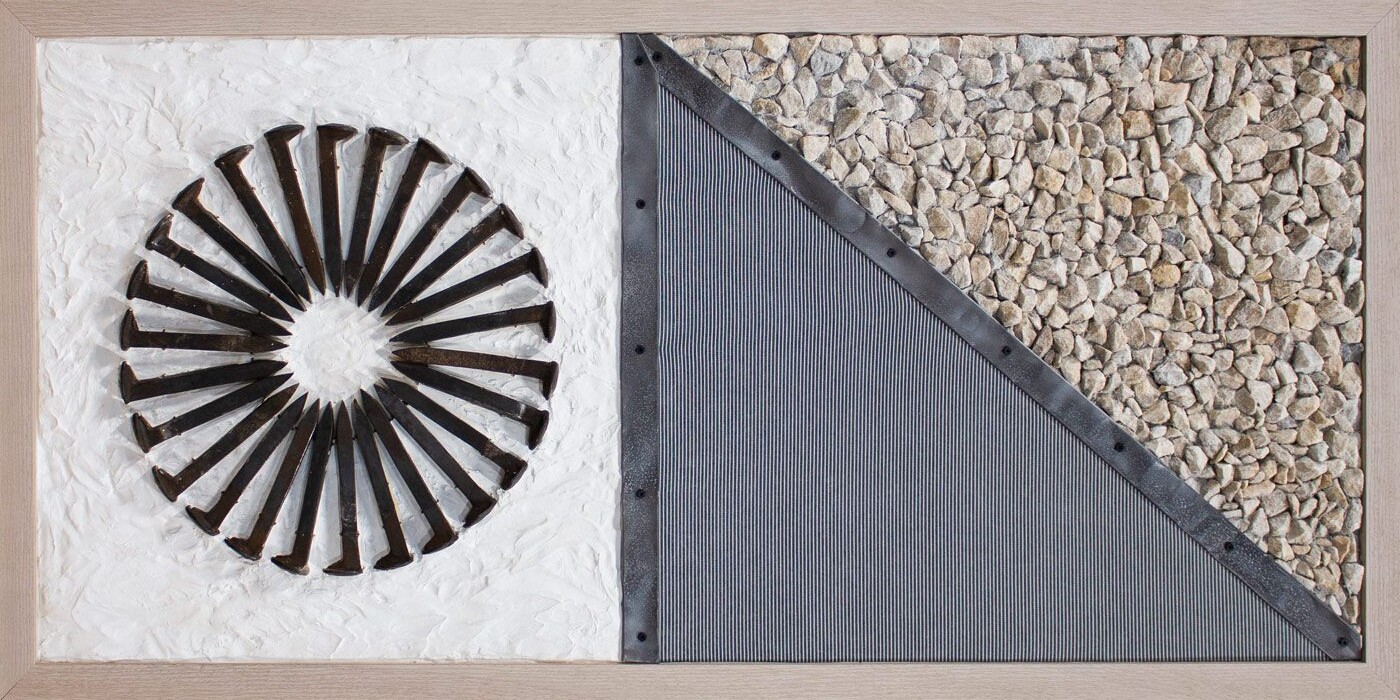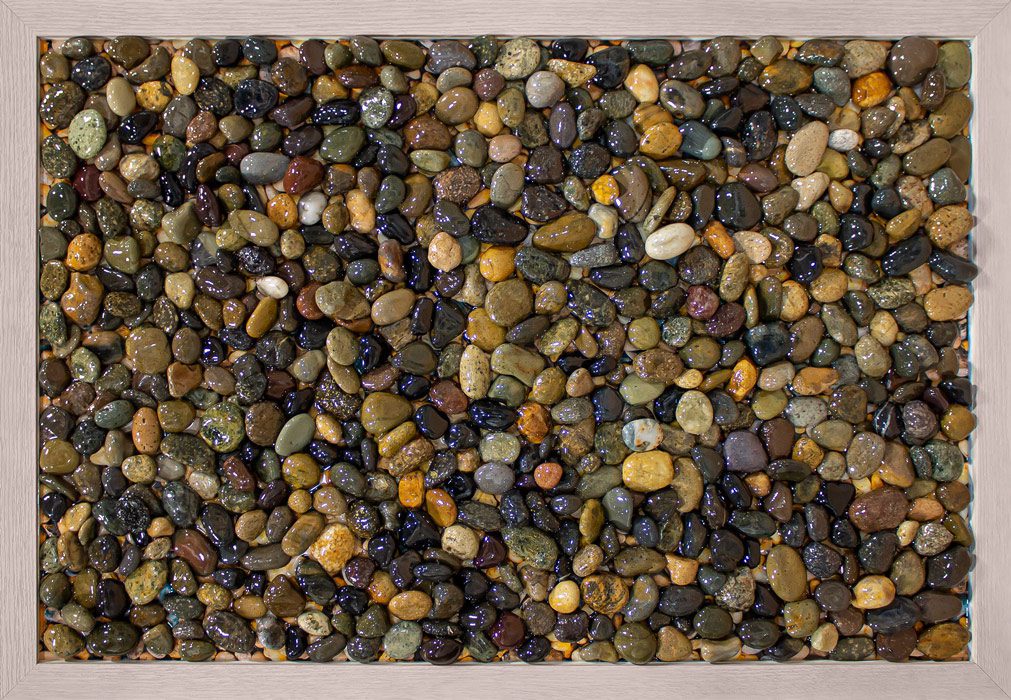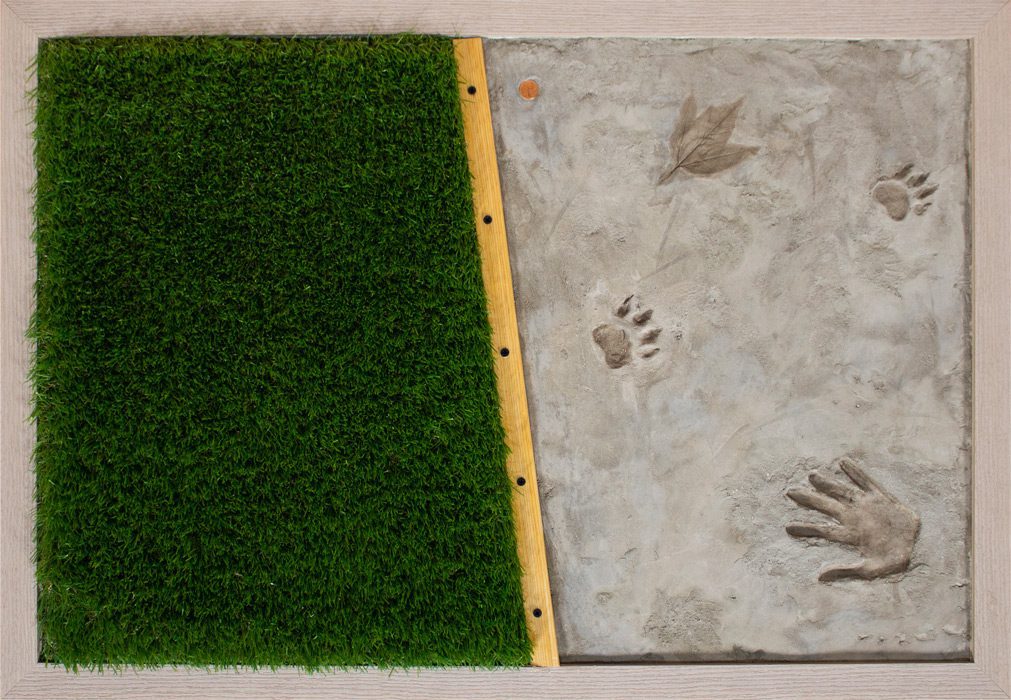Tactile Art in the Spotlight
Client
Interior Design Associates
Project
Trulee Evanston
Location
Evanston, Illinois
About the Project
For Trulee Evanston, the goal was to enrich the memory care neighborhood with a tactile experience that would inspire conversation and reflection. ARCH Design crafted custom tactile art panels to celebrate Evanston’s unique character and offer residents connections to the past. Inspired by the city’s historic railways and proximity to Lake Michigan, each panel incorporates familiar materials and textures designed to encourage touch, spark memories, and support meaningful engagement.



All Aboard!
Railroad spikes represent Evanston’s connections to Chicago as a “streetcar suburb.” Their distinctive shape calls to mind the sight of trains passing by and the rhythmic sound of wheels on tracks. The circular arrangement creates a sense of motion and reflects the steady pace of travel.
The striped fabric resembles a train conductor’s uniform. The soft texture connects to the individuals behind the journey—perhaps a friend or family member who worked the rail lines or even the resident’s own experiences riding or working on the train.
The irregular, coarse texture of gravel offers a realistic glimpse of the rugged terrain surrounding the railway lines—stirring memories of standing on the edge of a platform or walking near the tracks as a train rumbled by.
Shoreline Reflections
Glossy stones sealed in resin mimic the wet, polished pebbles found along the Lake Michigan shoreline. The smooth surface brings back times of collecting rocks during summer walks, dipping toes into the cool lake water, and the soothing sound of waves rolling in.
The subtle shimmer across the resin adds a sense of movement and light, echoing the glint of sunlight dancing across the water. This panel offers a peaceful moment of reflection, recalling time spent outdoors surrounded by the beauty of the Great Lakes.

Lasting Impressions
This playful, nostalgic panel captures the spirit of suburban neighborhood sidewalks and backyard adventures. Realistic green turf evokes the feeling of freshly cut grass, inviting residents to recall the simple pleasures of time spent outdoors.
The concrete surface is filled with familiar impressions: a handprint, pawprints, a leaf, and even a penny. These small details spark memories of writing names in wet cement or leaving handprints behind. The panel honors the quiet, everyday moments that leave a lasting impression on the world and the lives of others.

About Tactile Art
Tactile art, a type of sensory art, is made up of mixed media with varying textures and surfaces, and as its name suggests, is meant to be appreciated through touch. The artwork encourages sensory exploration, which can strengthen cognitive and developmental function in individuals struggling with memory impairments such as Alzheimer’s and dementia.
Scientific studies show that interacting with tactile art can elicit retrieval of memories or familiar feelings in those struggling with memory disorders. This connection evokes positive emotions and with it, a sense of peace and calm. Engaging with tactile art can also serve as a means for social engagement and an outlet for residents to interact with the world around them. Tactile stimulation can have numerous benefits for memory care residents, including promoting mental wellness and improving their quality of life.